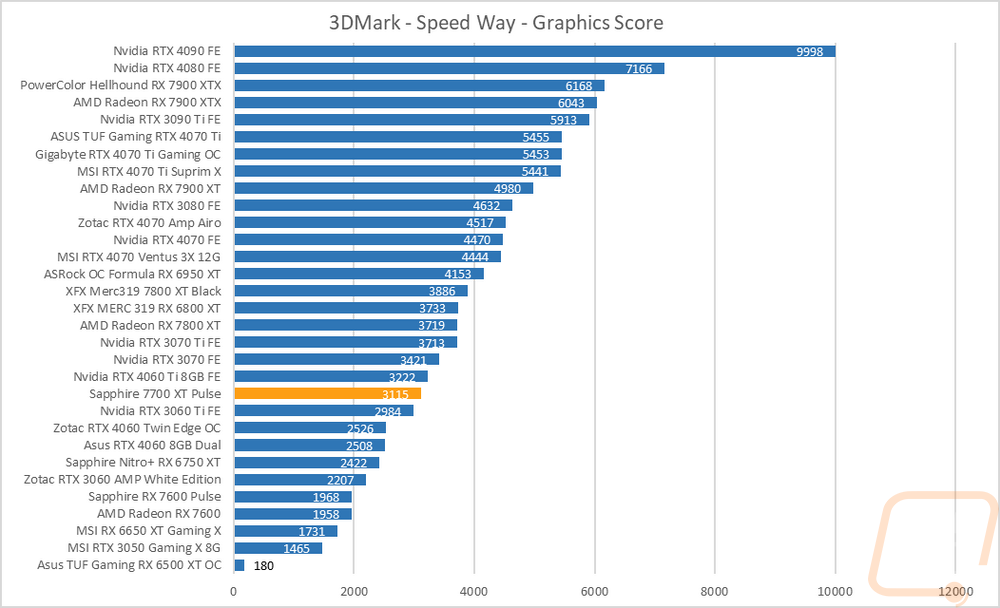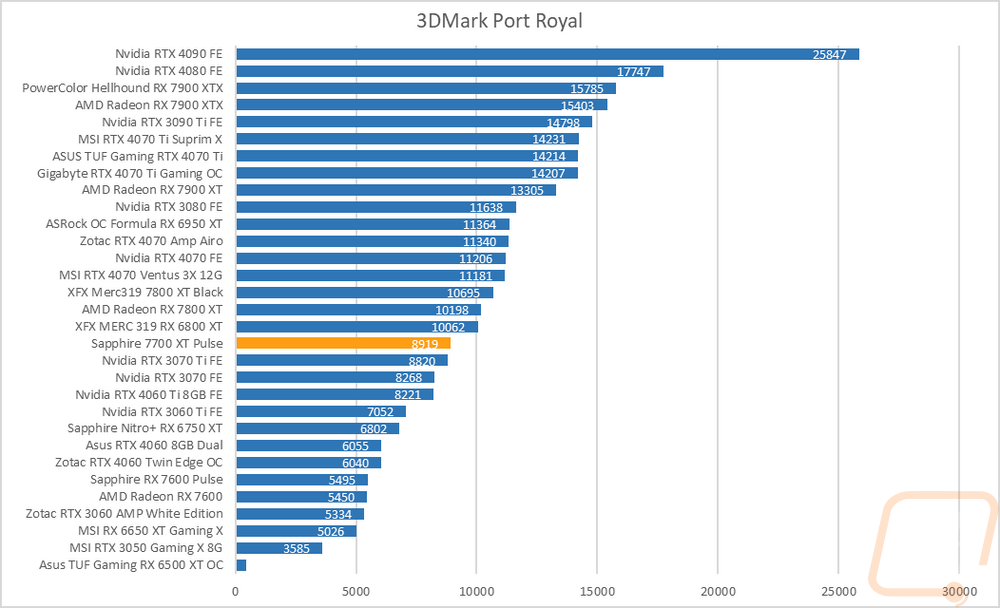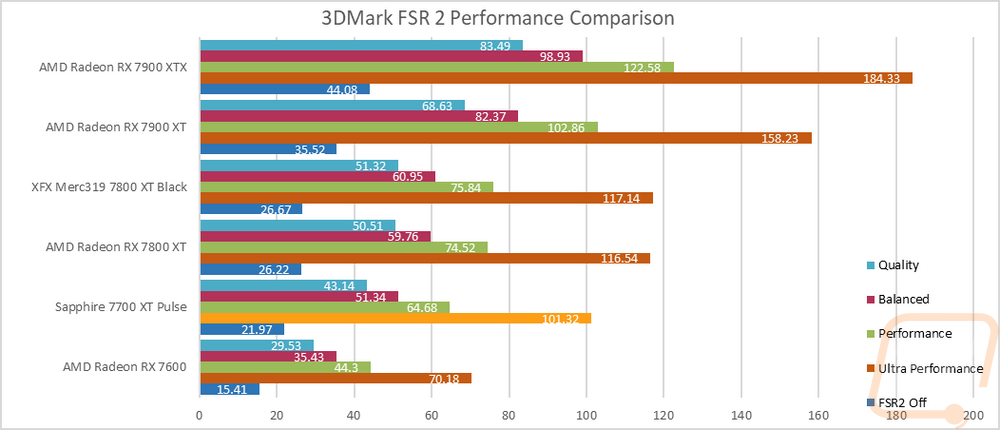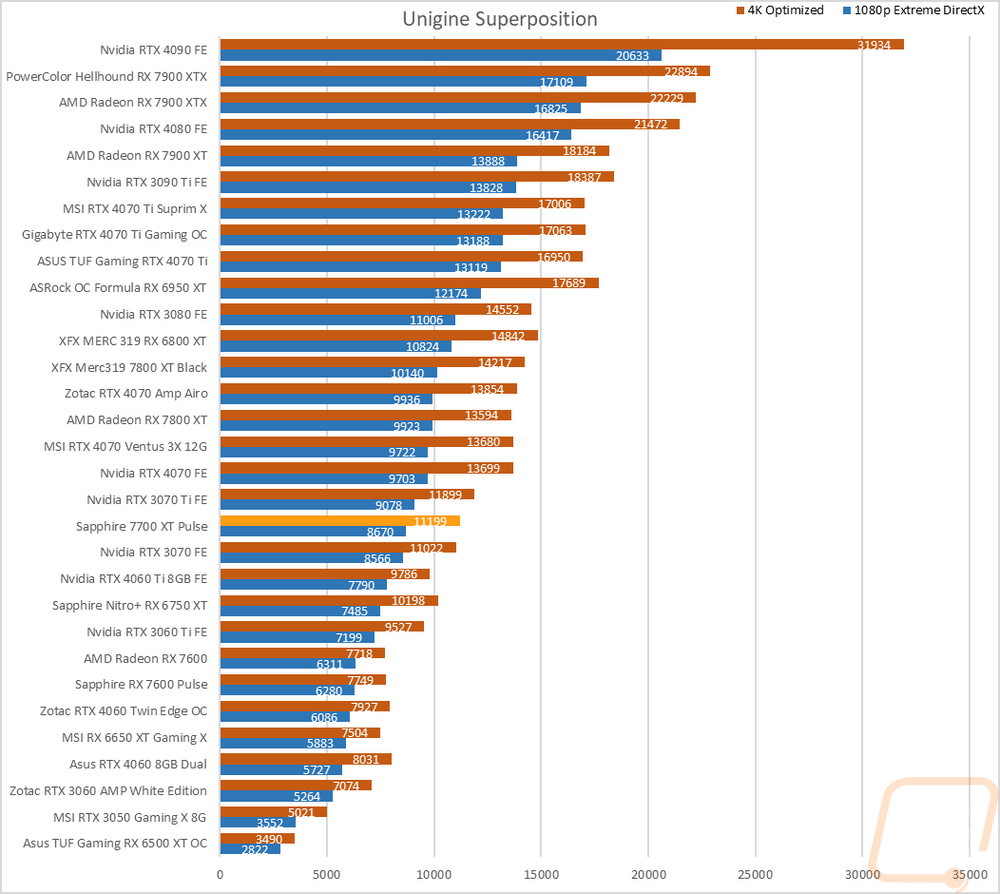Synthetic Benchmarks
As always I like to start my testing with a few synthetic benchmarks. 3DMark especially is one of my favorites because it is very optimized in both Nvidia and AMD drivers. It's nice to not have to worry about it being favored too much either way and the repeatability of the results makes it a nice chance to compare from card to card, especially when comparing with the same GPU. The RX 7700 XT Pulse is the first 7700 XT we are checking out, but I do want to see how it compares to the 7800 XT that has also launched as well as the RTX 4060 Ti from Nvidia and AMD's previous generation with the RX 6750 XT as well.
The first round of tests were done in the older Fire Strike benchmark which is a DX11 test. There are three detail levels, performance, extreme, and ultra. The RX 7700 XT Pulse scored 42005 in the base Fire Strike benchmark. This put it right in the middle of two RTX 4070 and with that, it is of course also ahead of the 4060 Ti. The 6750 XT is also behind it as well. Going up to Fire Strike Extreme the 4070 moved up but the RX 7700 XT Pulse is still out ahead of the 6750 XT by a good margin then at Fire Strike Ultra the RX 7700 XT Pulse is back out in front of all of the RTX 4070.



The next two were both based on the Time Spy benchmark. One is the standard test and then there is the extreme detail level. For Time Spy the RX 7700 XT Pulse scored a 16812 which put it right in between last generations RTX 3080 and the 3070 Ti. The RX 7700 XT Pulse is 22% ahead of the 6750 XT. The Time Spy Extreme results were similar with the RX 7700 XT Pulse sitting between the 3070 Ti and the 3080/4070.


For ray tracing performance, I ran both the 3DMark Port Royal test which is ray tracing focused as well as the new 3DMark Speed Way test which tests all future-looking features including ray tracing. In Speed Way, the RX 7700 XT Pulse comes in behind the RTX 4060 Ti 8GB and ahead of the older 3060 Ti. It is however way out in front of the 6750 XT, so while not on par with Nvidia’s Speed Way performance AMD has made improvements this generation over the last generation. In Port Royal, the RX 7700 XT Pulse is just ahead of the 3070 Ti and way ahead of the 4060 Ti 8GB.


I did also want to check out the FSR 2 performance of the RX 7700 XT Pulse, for that I ran the performance comparison in 3Dmark putting it against the other 7000 Series cards for comparison. This isn’t about card-to-card performance though, I was mostly looking to see the kind of performance that FSR 2 can offer. Without FSR 2 at all the RX 7700 XT Pulse averaged 21.97 FPS, turning it on at the highest quality was enough to almost double that to 43.14 FPS. From there the balanced and performance quality options improved on that even more up to 51.34 FPS and 64.68 FPS then the ultra-performance setting jumps way up to an impressive 101.32 FPS.

The last test was using the Unigine-based Superposition benchmark and I tested at 1080p with the extreme detail setting as well as the 4K optimized setting. In the extreme detail setting the RX 7700 XT Pulseis sitting below the RTX 3070 Ti and ahead of the RTX 3070 once again which puts it out in front of the RX 6750 XT and 4060 Ti but with a big gap between it and the RTX 4070s which are in a big group above the 3070 Ti.



